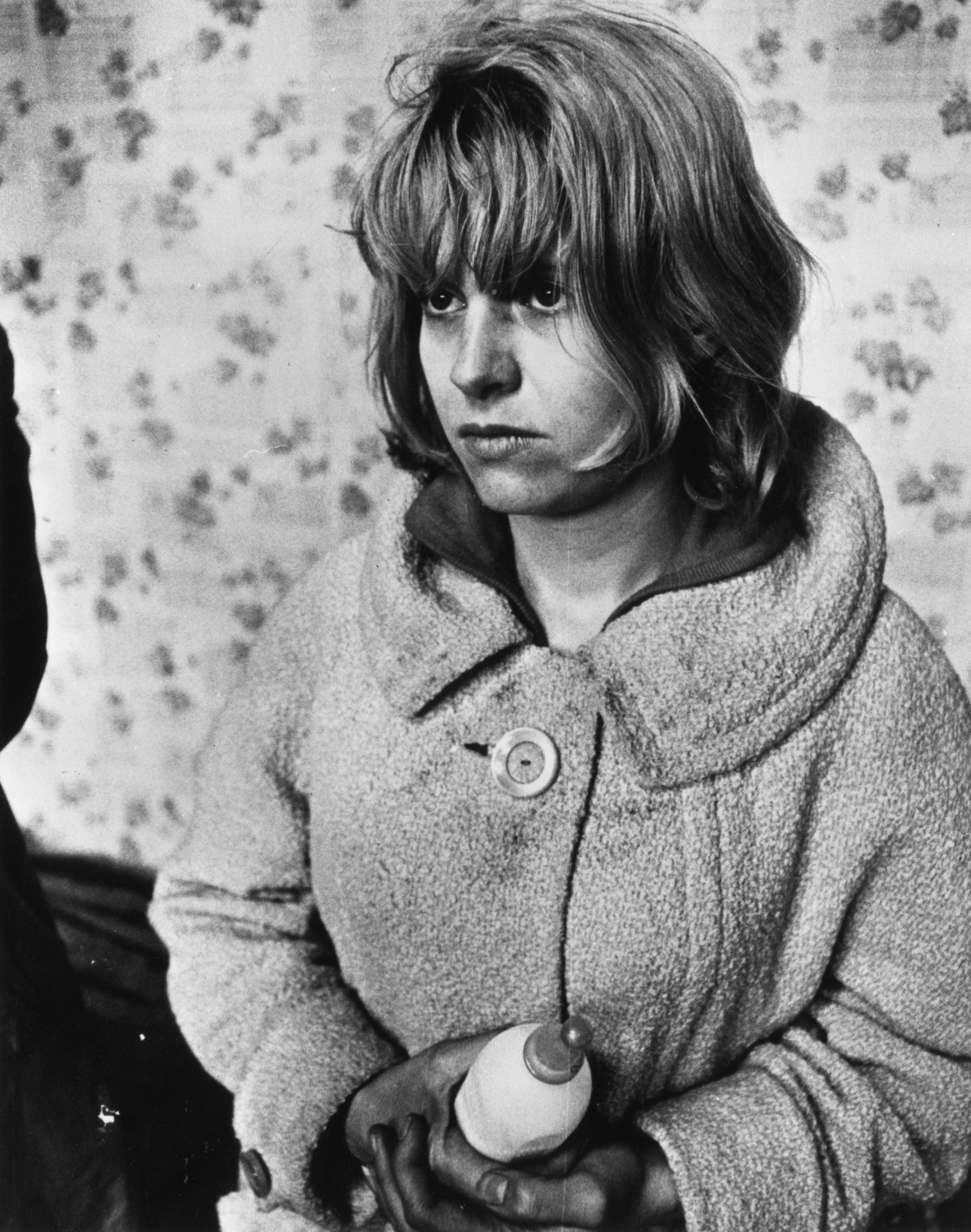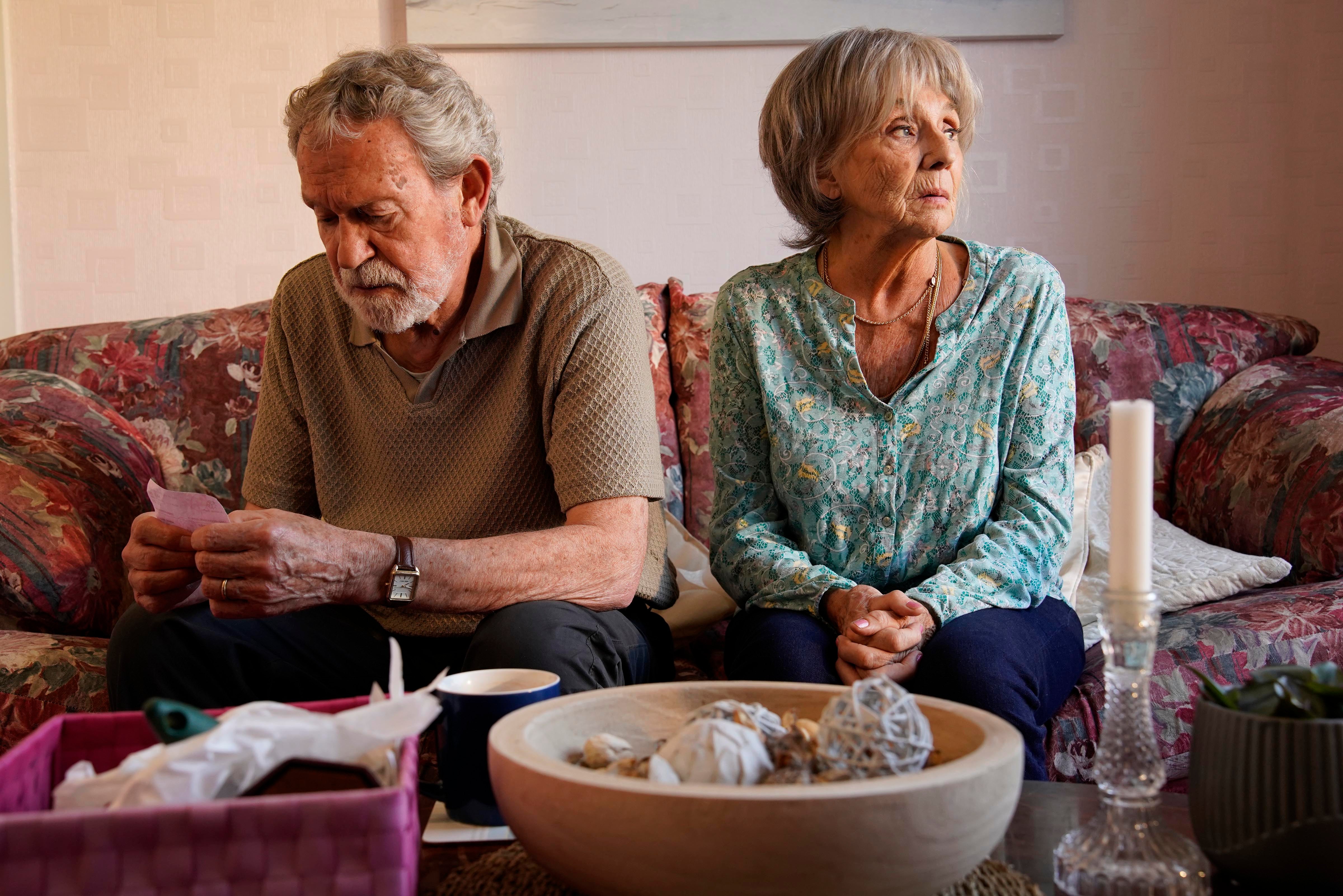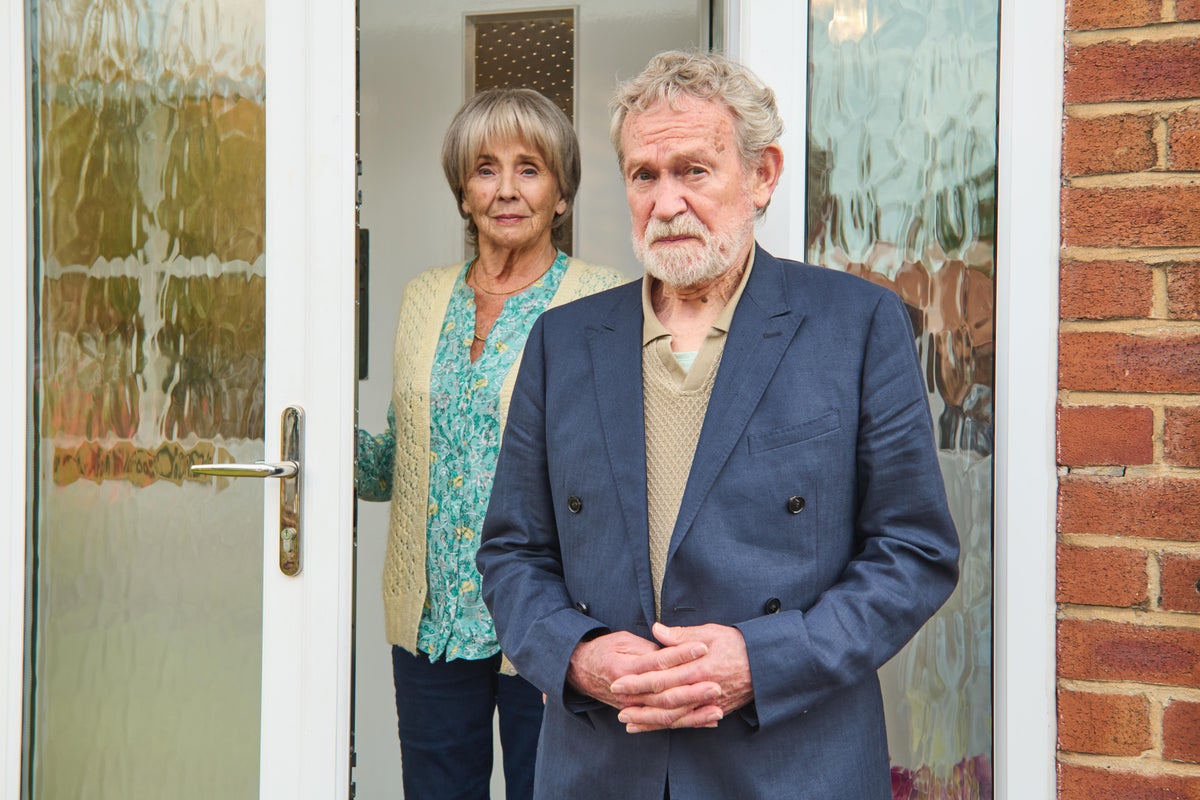Your support helps us to tell the story
From reproductive rights to climate change to Big Tech, The Independent is on the ground when the story is developing. Whether it’s investigating the financials of Elon Musk’s pro-Trump PAC or producing our latest documentary, ‘The A Word’, which shines a light on the American women fighting for reproductive rights, we know how important it is to parse out the facts from the messaging.
At such a critical moment in US history, we need reporters on the ground. Your donation allows us to keep sending journalists to speak to both sides of the story.
The Independent is trusted by Americans across the entire political spectrum. And unlike many other quality news outlets, we choose not to lock Americans out of our reporting and analysis with paywalls. We believe quality journalism should be available to everyone, paid for by those who can afford it.
Your support makes all the difference.Read more
Play for Today, back on our screens this week after four decades, was a veritable national institution when it first aired in Britain between 1970 and 1984. The strand of one-off films alternately charmed the country and made powerful, impassioned critiques on the biggest issues of the day, taking in a mix of major state-of-the-nation, socialist-realist dramas. Take Ken Loach’s Cathy Come Home, about a young couple whose lives are blighted by poverty, or the highly controversial prison drama Scum. There were also colourful, sometimes satirical portraits of British life (Mike Leigh’s Abigail’s Party being the most notable). The films weren’t scared of highlighting offbeat fare, either, like in Penda’s Fen – a magical-realist coming-of-age tale laced with folk horror.
The dramas, made by and starring working-class talent in many cases – much of which was sourced from the BBC’s former regional outpost at Pebble Mill in Birmingham – gave a platform to underrepresented voices, establishing the likes of Dennis Potter and Alan Bleasdale along the way. “Play for Today was a space to be experimental, at the heart of the mainstream,” says Phil Harrison, a journalist and author of The Age of Static: How TV Explains Modern Britain. “And lots of it was really ahead of its time – something like Penda’s Fen, for example, both in terms of format and subject matter. I love the idea of people just chancing upon these quite dark, quite hard-hitting things and not knowing what to make of them. It feels like properly adventurous public service broadcasting.”
“Properly adventurous public service broadcasting” is certainly what Channel 5 is hoping to replicate with its new revival, with four original dramas airing over the coming weeks and more in the pipeline. The aim is also to diversify the often cliquey, middle-class TV industry, where who you know is arguably more important than how good you are. “There is a crisis at the moment in UK drama”, says Sebastian Cardwell, Channel 5’s head of drama and deputy head of content for its parent company, Paramount. “You need a credit on your CV, and if you come from a low-income or disadvantaged background, it’s incredibly difficult to break into [the industry]. We thought we would use the returning strand of Play For Today to let people hone their talent.” The idea was conceived following a conversation with Vertigo Films’ Allan Niblo, with the first four films made by Vertigo in London and Liverpool-based LA Productions (each company has made two respectively).
Born in 1993 – nine years after Play for Today last aired – screenwriter Martha Watson Allpress wasn’t around to see the first incarnation of the TV juggernaut. “I was like, oh I’ve just got this email – this is interesting,” she says, recalling the moment she was asked to participate in its revival. “My mum was like, oh my God! I knew it was a big thing when she went slightly haywire with excitement.” Watson Allpress quickly got to work on Big Winners, one of the first dramas in the new series, about an elderly couple whose £14m lottery win kickstarts conversations between them about deep-seated traumas and buried ambitions.
Watson Allpress cut her teeth in theatre, with plays such as the acclaimed Patricia Gets Ready (for a Date With the Man That Used to Hit Her), so Big Winners marks her transition to television. As a playwright, snagging her first TV project this way “just felt really serendipitous”, she says. However, she resisted the urge to head straight for the vast archive and start taking notes. “If I did that, I would just regurgitate people I admire. But I think the whole point is to write a play for today.”
“The more diverse your stories are, the more diverse your viewership is – everybody wins. I just felt like, everyone’s doing this for the right reasons.”
Martha Watson Allpress
Big Winners tells the story of Arthur and Edith Thistle (Paul Copley and Sue Johnston), who should be enjoying their colossal lottery windfall – indeed, Arthur quickly declares that he wants to move “somewhere classy, somewhere sunny – with a Waitrose”. Instead, they find themselves raking over their unfulfilled dreams, Edith’s in particular. Her life has been “a domino run of dissatisfaction”, as Watson Allpress rather poetically puts it, and the film juxtaposes her stilted existence with the vital presence of a younger neighbour, Jade (Alexa Davies). What does Watson Allpress think her piece says about the present moment? “I’m of the opinion that the world is a really scary place [right now], and it can feel so messy and overwhelming”, she says. “[You can feel like] I, as one person, couldn’t possibly do anything about it – so I’ll do nothing. Big Winners is about not making decisions and letting someone else guide your life, and how that’s probably worse than being wrong and strong.”
Originally from Sleaford in Lincolnshire, the writer was keen to set her film in a similar milieu. “There’s this fallacy that if you’re from a small town, you’ve got small dreams. And that’s just not true.”

open image in gallery
Carol White starring in Ken Loach’s film ‘Cathy Come Home’ about a woman who loses everything to the Welfare State (Getty)
Watson Allpress was also keen to write older protagonists in a way that gave them agency and intrigue; Johnston (best known as Royle Family matriarch Barbara) and Copley (who starred in Downton Abbey, and was in seven previous Play for Today films) are 81 and 80 respectively. She had just finished facilitating a programme with older writers, ranging from their seventies to their mid-nineties, when she began work on the script. “I was really struck watching older writers write older characters. No one wrote grandparents,” she says. “I really wanted to centre an older woman here, because I think that’s a forgotten demographic on screen. And then we got Sue Johnston, and I lost my mind!” If the women writers and directors of Play For Today 1.0 could often be overlooked, here Watson Allpress is decidedly centre stage, along with her octogenarian lead and a woman director, Emma Turner, to boot.

open image in gallery
Sue Johnston and Paul Copley in ‘Big Winners’ (Channel 5)
The brief centred on producing a contained story, something that Watson Allpress used to build what she describes as a “pressure cooker” atmosphere in Big Winners. It’s a thread that continues through the films (Special Measures is set in a failing school, Never Too Late in an anarchic retirement home), but which perhaps reaches its most pressurised peak in A Knock at the Door, described by its makers as having “the tension of a ticking bomb”. A meditation on cancel culture, Alan Davies plays disgraced actor Lenny Bray, with Nikki Amuka-Bird (NW, Small Island) as his loyal but increasingly burnt-out wife, Maggie, who has stood beside him amid allegations of impropriety from a number of women. Newcomer Logan Mersh gives a performance to rival his more well-known co-stars, as the delivery driver who is attacked outside the couple’s beautiful, Grand Designs-worthy home and comes to them begging for help (spoiler alert: he’s not a delivery driver after all).

open image in gallery
Nikki Amuka-Bird in ‘A Knock at the Door’ (Channel 5)
In a post-#MeToo landscape that often seems depressingly unchanged, A Knock at the Door’s resonance is clear. “I’m always really fascinated – and sadly these stories are all too common now – by celebrities or politicians or people in power abusing that power,” says Amuka-Bird. “One of the strongest tools for them to plead their innocence is their spouse, and the fact that they are standing by them. I was fascinated by this story, and [the sense of]: ‘How are you still there?’ Maggie has a beautiful life and things she’s not necessarily ready to give up. So perhaps she keeps convincing herself of Lenny’s innocence.”
A Knock at the Door was written by novelist David Whitehouse, and directed by Daniel Rands, the latter of whom has previously been the recipient of scholarships from the BBC and the National Film and Television School. “I had seen Dan’s work, and I knew his ability to hold tension,” says Amuka-Bird. “I’m always really interested in work that has that kind of visceral quality to it – it’s engaging you intellectually, but it’s making the hairs on the back of your arms stand up, too.”
There’s a rawness to all of the films in fact – even Never Too Late, Lydia Marchant and Simon Warne’s soapy tragicomedy about a glamorous, rebellious widow played by Anita Dobson, who reencounters an old flame in her mid-seventies, played by Nigel Havers. Special Measures, meanwhile – written by Lee Thompson – is a short, sharp, shock of a drama that squarely takes aim at a broken, underfunded state school system, as an Ofsted inspection unravels and teachers begin to consider leaving the profession altogether. One hungry pupil even asks her teacher whether she can take home their classroom snacks for dinner. It doesn’t have to reach for hyperbole to find horror, instead locating it in the sorts of scenes that are playing out in schools across the country.

open image in gallery
Alan Davies in ‘A Knock at the Door’ (Channel 5)
“Diversity schemes” of any sort can make participants feel used – chewed up and spat out to provide new fuel for the media machine, be it in TV, film, journalism or any other industry where such initiatives are found. For Watson Allpress, her experience of Play For Today couldn’t be more different. She found herself moved by what TV exec Cardwell said at a recent screening of the dramas, about how excited Channel 5 was to be airing them. And there are benefits on all sides. “It’s a two-way street,” she says. “The more diverse your stories are, the more diverse your viewership is – everybody wins. I just felt like, everyone’s doing this for the right reasons.”
As for the future of Play For Today, the current, highly fractious moment in both Britain and the world will surely inspire more writers; indeed, like the original, there is surely much to say about race and identity in particular. Watson Allpress sees it as a springboard that could well kickstart writers’ TV careers for years to come. “It should be like national service,” she laughs. “We should bring all the working-class writers through.”
Play for Today airs on Channel 5 from 13 November

